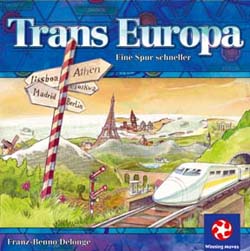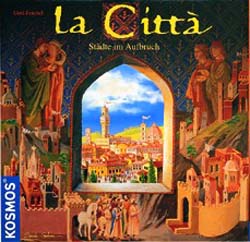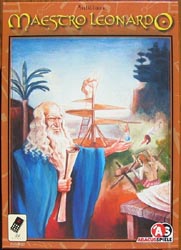 Â
Â
This week, we decided to try Da Vinci Games’s Maestro Leonardo, which has received quite a bit of praise since it first appeared in the middle of last year.
The game is about great inventors in Renaissance Italy competing to develop and complete inventions. Players assign workers to research labs or to areas of the city to collect components, recruit more workers or upgrade your lab. Completed inventions bring monetary reward and, if first to complete a particular invention, a discount towards the research needed to complete further inventions of the same type.
Each round is played in four phases:
A) Laboratory Phase, where each player declares if he going to work on a new invention.
B) Assignment Phase. Players in turn assign workers to various tasks. C) Employment Phase. The benefits of each area are distributed. Each city area has a maximum of four rewards to distribute at increasing cost; research workers add to the amount of time spent on developing an invention.
D) Research Phase. A player who has completed the required time working on an invention declares it complete and collects the listed number of florins.
After 9 rounds, the game ends and cash bonuses are awarded to those who have collected invention cards in at least 3 different types. Most Money wins.
We decided to play the standard set-up for our first game and we all complained about what bad starting positions we had. In hindsight, I think they are reasonably balanced but mean different players have to approach the early rounds in different ways. Mark K was the component king, making sure he had ample supply of resources before really starting on any inventions. I ran with one lab for a large part of the game and managed to get 7 and 15 research week inventions completed before splashing out on a second lab. Nige kept picking away at the cheap inventions and had a fair bit of success. Mark G started with lots of workers and built up his band of followers even further. Annoyingly, he also seemed to decide to place workers time after time in exactly the places I had just played. John unfortunately also seemed to be having more than a fair share of bad fortune and didn’t spot a few threats from people meaning he couldn’t afford to do what he wanted. Money did seem pretty tight. It was difficult to tell who was doing well and the scores at the end proved why. Nige managed to get a 13 florin bonus and the two Marks the 8 florin bonus. I missed out on the bonuses and had to settle for second place on both my last two inventions. If either one had come through I would have won but it finished with Nige and the two Marks all tied on 45 florins. Nige was ecstatic when the tie-break went in his favour.
Leonardo is a very good game, with lots of routes to victory and plenty to get your teeth into. Being our first attempt, it took a bit longer than we would have liked but I’m getting used to our thoughtful approach and I’m sure a second playing would be considerably quicker. Another fine game: all three in 2007 so far have been winners to me.



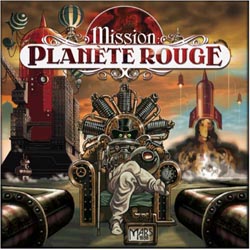

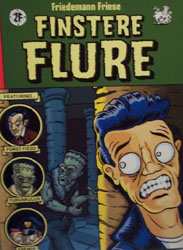

 Â
 
